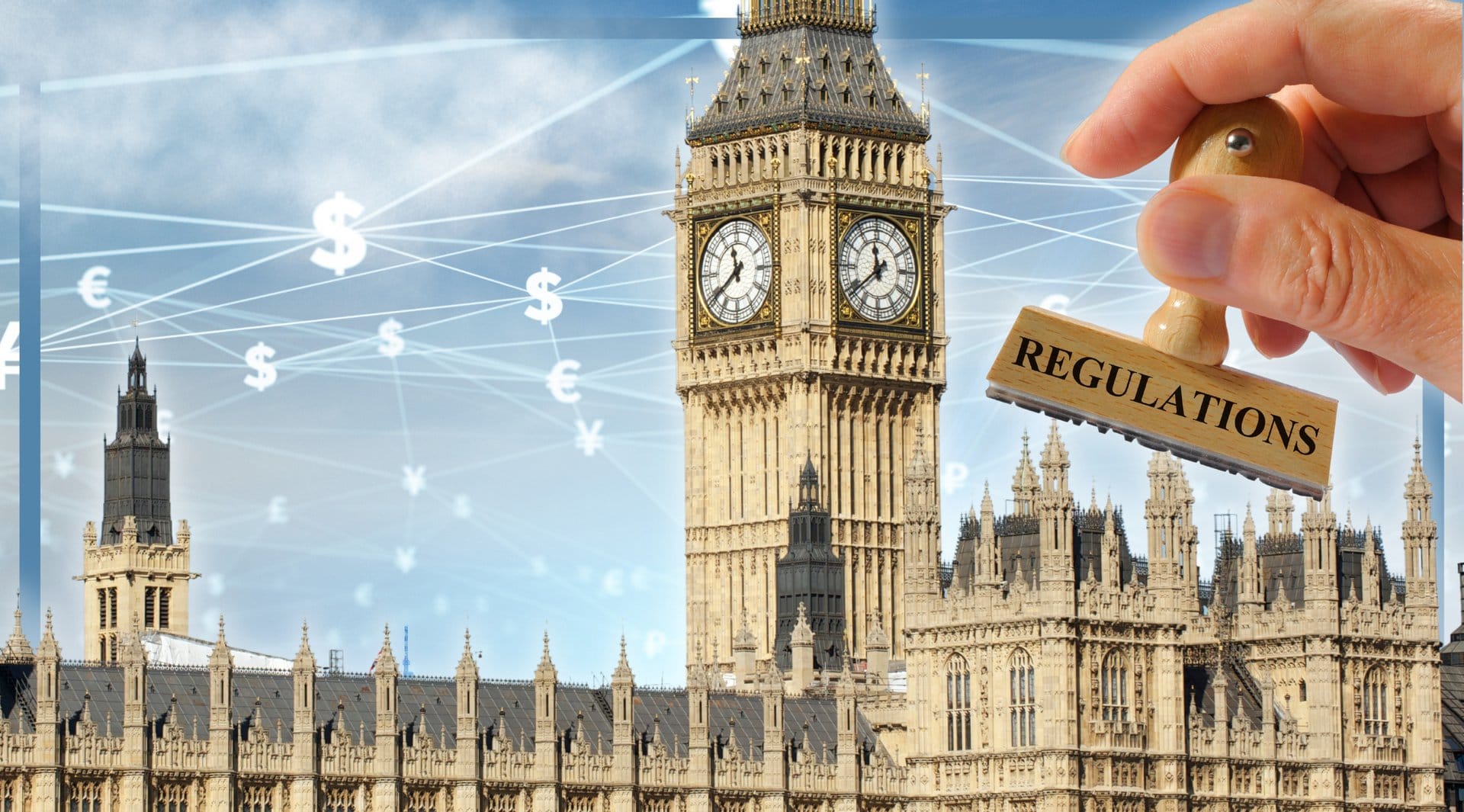In March, further amendments were made to the Financial Services and Markets Bill, which was initially proposed by the UK government last year. The bill is currently under further review at the House of Lords. But how will this bill affect FinTech and DeFi?
The Proposals
The bill begins to implement proposals from the Treasury’s (HMT) Future Regulatory Framework Review (FRF). One objective of the proposed bill is to “harness the opportunities of innovative technologies in financial services.” One of the main proposals is to regulate stablecoins, which could see them being introduced into the ecosystem. This means stablecoins will be recognised as a form of payment and will be regulated as part of the government’s strategy “to make the UK a global hub for cryptoasset technology and investment.” This means firms undertaking activities in relation to stablecoins for payments would become subject to regulatory requirements.
In addition, algorithmic stablecoins, which keep their value by controlling its supply through technology, will be regulated as unbacked crypto assets, rather than stablecoins which are collateralised by other cryptocurrencies and held in reserve. For example, MakerDAO’s DAI would be deemed a stablecoin. As with other payment services entities, stablecoin-based payment services will have be to established in the U.K. to provide these services in the country.
We're working to make the UK a global cryptoassets hub. We want to see the businesses of tomorrow, and the jobs they create, here in the UK.
— Rishi Sunak (@RishiSunak) April 4, 2022
Today @JohnGlenUK set out how we are going to encourage crypto investment and technology in UK markets. 👇https://t.co/MdZ5IOLZtH
In addition, the government plans to create a Cryptoasset Engagement Group to work more closely with the industry, and explore enhancing the competitiveness of the UK tax system to encourage further development of the cryptoasset market. They have also proposed plans to work with the Royal Mint on a Non-Fungible Token (NFT). These steps are a big development in seeing crypto regulated and more accessible to the public. The goals set out by Economic Secretary to the Treasury, John Glen, at the Innovate Finance Global Summit are to “recognise the potential of this technology and regulating it now, the government can ensure financial stability and high regulatory standards so that these new technologies can ultimately be used both reliably and safely.”
Economic Secretary @JohnGlenUK announced today that stablecoins will be brought into UK payments regulation.
— HM Treasury (@hmtreasury) April 4, 2022
This places the UK financial services sector at the forefront of technology, creating conditions for stablecoin issuers and service providers to operate and invest. pic.twitter.com/14SsIGW5bf
Another proposal involves regulatory sandboxes, which permits companies to experiment with new technologies and practices, including testing the use of blockchains in Financial Market Infrastructure (FMI). This could see further distribution and testing of blockchains by more mainstream companies, such as Visa.
The UK Government has also been highlighted recently as one which is behind in assessing the risks of artificial intelligence (AI). Is this also reflective of the government’s generally inadequate approach to the tech sector and FinTech? The recent controversy surrounding the withdrawal of funding to Tech Nation is another case in point.
The proposed bill includes an international competitiveness and growth objective for both the Financial Conduct Authority (FCA) and Prudential Regulation Authority (PRA). This would require them “to consider the competitiveness of the UK economy, including financial services, and its growth in the medium to long term.” Could this mean turning a blind eye to certain misconducts, if not doing so would impact economic growth? This would undermine the entire point of regulatory bodies, to protect businesses and customers from malpractice. The City UK have argued that this move would be an “advocacy win” but must be implemented “with genuine accountability mechanisms.”
Controversies
One of the most debated proposals put forward in the bill involves the “government intervention plan.” This would give the Treasury the power to direct a regulator to make, amend, or revoke rules where there are matters of significant public interest. This sparked debate as this proposal was not in the original bill and therefore had not been put before the House of Commons for MPs to review. The government claimed this was due to the change of Prime Minister. However, Dame Angela Eagle stated the amendment must go before the House of Commons so MPs can examine the proposal, before it is fast tracked to the House of Lords. This was followed through.
The transferring of EU law to regulators was also the subject of debate. Several committee members questioned the process and timing of the changes. SNP MP Peter Grant proposed that the Treasury should not be permitted to revoke any retained EU financial services laws if it would be prejudicial to the interests of consumers. He said his party was close to voting against the Bill because they do not believe that it will be possible, given the scale and speed of the process, to replace the EU law with something similar. Grant’s proposal was voted against by the committee.
Crypto Regulation
Stablecoin regulation was also contested. MP Tulip Siddiq voiced her concern that the UK could become a centre for illicit activity without appropriate regulation. In the committee stage Siddiq asked whether the government has “specific tactics to ensure access, consumer protection and competition.”
Chris Hemsely responded that they plan to “continue working closely with the two other principal regulators that tackle these issues—the FCA and the Bank of England—as we do today. We want the full framework to be turned on.” He added that “the Bank of England ensures there is sufficient security and resilience, so that the systems actually work when we need them to, as we increasingly rely on them.”
Martin Docherty-Hughes also debated this stating: “I am glad to see that there is some regulation in the Bill, but you used terms such as “future-proofing”. With this technology, we bandy around terms such as “innovation” and “future-proofing”. What does that actually mean, in real financial terms?” Hemsely responded: “the way that the regulation works is that it still requires the Treasury to issue a designation—the Minister issuing a designation of a system—and our statutory duties and checks and balances then kick in. It is shorthand. If I try a slightly more precise framework, you need to ensure that the initial definition is sufficiently broad, so that those subsequent decisions on if and how something should be regulated can apply.”
Big thank you to @EmmaHardyMP @angelaeagle @LizTwistMP & @Siobhain_Mc for supporting me in scrutinising the Financial Services & Markets Bill at committee stage these past two weeks.
— Tulip Siddiq (@TulipSiddiq) November 3, 2022
We have pushed for more ambitious measures on fraud, net zero and financial inclusion. 1/2 pic.twitter.com/mQFtgqjoG8
Andrew Griffith, Financial Secretary to the Treasury, confirmed there would be further wider consultations before the end of the year. A letter written by Griffith also addressed that, for the time being, only stablecoins used for payment and backed by fiat currency will be regulated, and that the high volatility of other cryptoassets makes them unsuitable for payment. The Treasury intends to consult on a “world-leading” regime for a wider set of crypto assets, including those primarily used for investment, later this year. It also notes that it is likely that any future Central Bank Digital Currency would exist alongside crypto assets and stablecoins. The Government and BoE are still deciding whether to introduce a CBDC in the UK and will consult on that later this year.
The step towards regulating stablecoins for use of payment is a big step for the FinTech community. With ongoing discussions on CBDC and more inclusion of cryptocurrencies, it clear that crypto is becoming a more accepted financial asset. The bill is currently under the House of Lords and is due to go into its third reading before going to final stages and getting Royal Assent.
Author: Bronwen Latham
#UKGovernment #FinTech #DeFi #Crypto #Stablecoins #Regulation















